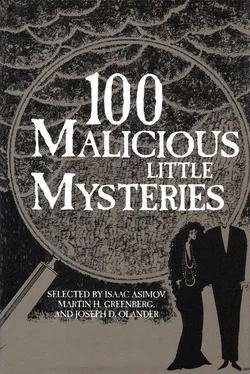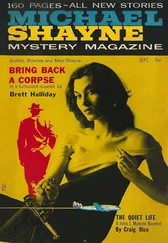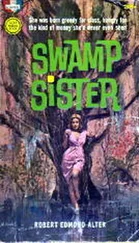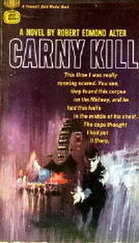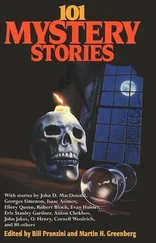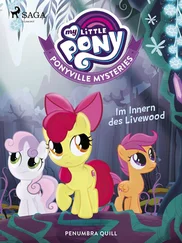Perhaps they were just riding along and stopped to rest the horses. Or they might have been arguing for days, and this spot of dry and seared plains with its greasewood and black sage happened to be where the talk erupted into something more deadly. The territories were not tranquil places.
It could be they sat and smoked in the taciturn manner common to range hands, each hoping for a cooling of blood. But it was not to be. In the end they dug the pit in the loosest soil they could find, probably loosening it further with a piece of pointed rock and throwing the soil out with their hands. They both worked at it, shirts off and the sweat drying almost as soon as it surfaced on the skin. The wind blew little dust devils off the top of the pile of dirt beside the pit.
The sun was low and the shadows were long when they finished. The horses, restless now and eager to move on, nickered and pulled at the reins looped around a branch of the pine.
When the pit was chest-high in depth and oval in shape, they stopped digging. It is likely they climbed out to rest and smoke. When they got back in, they fought with knives, silently.
Only one man crawled out. He slid back in twice on top of the other man, for he was grievously hurt. The smell of blood spooked one of the horses. With a wild tossing of head and rolling of eye it broke loose. The man watched the spurts of dust rise from each hoofbeat as the mount ran off.
Some weeks later a rider drew rein at the spot where a small mound of stones, wrenched from the rib cage of the hill, marred the otherwise featureless aspect of the plain. He dismounted slowly, tethered his horse to the pine, and took down from the back of the saddle a board attached to a stake.
He worked with one hand. His right arm hung down, and swung loosely when he walked. A raw scar the color of fresh liver began at his temple, ran down the side of his jaw, under an ear, and disappeared beneath his collar. From time to time he stopped to rest, hunkered on his heels with his good hand pressed to his side under the nerveless arm. He had to prop up the stake with stones in order to drive the sharpened stake with a piece of rock held in his left hand.
When he was finished he rolled a cigarette, spilling two papers of tobacco down his shirt front before he succeeded. It hung unlighted in his mouth. He fished for a match but found none. It took him a long time to reach into his right-hand pants pocket with the good arm. The unsmoked cigarette still dangled from his lips when he rode off.
The section of the Wyoming territory where the men dug their pit is on the edge of the upper Sonoran continental life zone of North America. It is dry country, but it is almost on the verge of the Transitional zone. Sometimes rain washes the sage and the air has a clean sharp bite in the nose. You might come on the grave in the morning after just such a spring rain. Small bright blossoms of wildflowers will spangle the brown sod between the jagged rocks of the hillside.
Wood seldom rots in this dry land. If you ever find this lonely spot, you will still be able to read the legend carved into the weathered board nailed across the stake:
LAFE THOMAS
1882
HE LOST
Before you leave, be sure to notice how the drops of water on the needles of the little scrub pine catch the sunshine, breaking the light into glass-like shards which pierce the eye, even as a knife might pierce the heart.
Lot 721/XY258
by R. L. Stevens
It takes more than hatred to make a murderer.
William Willis had hated his wife almost from the day of their marriage seventeen years ago, but the thought of murder had never once crossed his mind. He was quite content to live out the days of his life without complaint, driving to the office each morning, returning each evening, and simply shutting his ears to the constant drone of her voice.
In her late thirties, Constance Willis had lost almost all the youthful beauty that had first attracted Willis to her in college. She was flabby of body and mind, hardly ever bothering to read a newspaper or pick up a book. Her days were spent in random shopping excursions with girl friends, at a weekly bridge club, and in countless hours on the telephone. But for all his hatred, William Willis had never thought of murder. In fact, he did not even think of divorce until he met Rita Morgan in the apartment downstairs.
Willis and his wife had no children, so they’d remained for many years in the pleasant garden apartment close to the downtown expressway. It was convenient to his office, and the surroundings had taken on the comfortable feeling of home. The apartment was one of the few things in their marriage that William and Constance agreed on.
When Rita Morgan moved into the apartment below them, Willis’ evenings and weekends immediately perked up. Rita was a twenty-five-year-old schoolteacher with long blonde hair and the sort of quiet beauty that couldn’t have passed unnoticed even among her fifth-grade pupils. Willis helped her move in, carrying a few cartons of books up from her car, and they became friends immediately. She was everything he’d seen in Constance seventeen years before. But more important, she was intelligent and witty.
“Were you down in Rita’s apartment again?” Constance asked one Saturday afternoon.
“One of her faucets was leaking,” he explained. “It only needed a new washer.”
“There’s a janitor to take care of those things.”
He sighed and opened a beer for himself. “You know she’d have to wait a month before he’d get around to it.”
Constance grunted, but he knew she was unhappy about his attentions to Rita Morgan. She need not have worried quite so much, for Rita was a virginal young lady — at least as far as Willis was concerned — who treated him only with neighborly good will.
Nevertheless, it was Rita’s presence on the scene that came first to Willis’ mind when he read in the afternoon paper about the food contamination. A twelve-year-old boy had died of botulism in Chicago after eating canned peaches that had been improperly sterilized. As a rule, peaches were rarely affected by botulism, but these had been processed in a special manner, making them more susceptible to the deadly spores.
Reflecting on the blind fate that had killed the boy, he could not help speculating on a similar fate befalling Constance. Driving home that night, his recent daydreams of divorce and marriage to Rita shifted focus. Now he imagined Constance dead, killed by some trick of fate like an automobile accident or contaminated food.
Constance did not mention the news of the botulism scare, and it passed from his mind for the night. She kept up so little on current events that he’d often had to explain at length some happening on the foreign scene or some new face on the political horizon. Her interest in events, and in people other than her own circle of friends, had virtually ceased the day she left college to marry Willis.
But he was reminded again of the canned peaches when one of the secretaries at the office mentioned it. The afternoon paper had further details, including word that all of one lot was being recalled by the canner. Can o’ Gold Fancy Prepared Peaches, lot 721/XY258.
Then the daydreams returned. He knew Constance ate canned peaches during the summer, often having them as part of her dessert. And he knew that she sometimes bought the Can o’ Gold brand.
He poured over the newspapers that afternoon, even walking three blocks to a store where he knew he could buy a Chicago paper. He read more about the boy’s death, and about the deadly effects of botulism poisoning, and the fantasy continued to grow in his mind. By the evening paper all Can o’ Gold fruit products were being recalled, and consumers were being warned to avoid lot 721 /XY258.
Читать дальше
